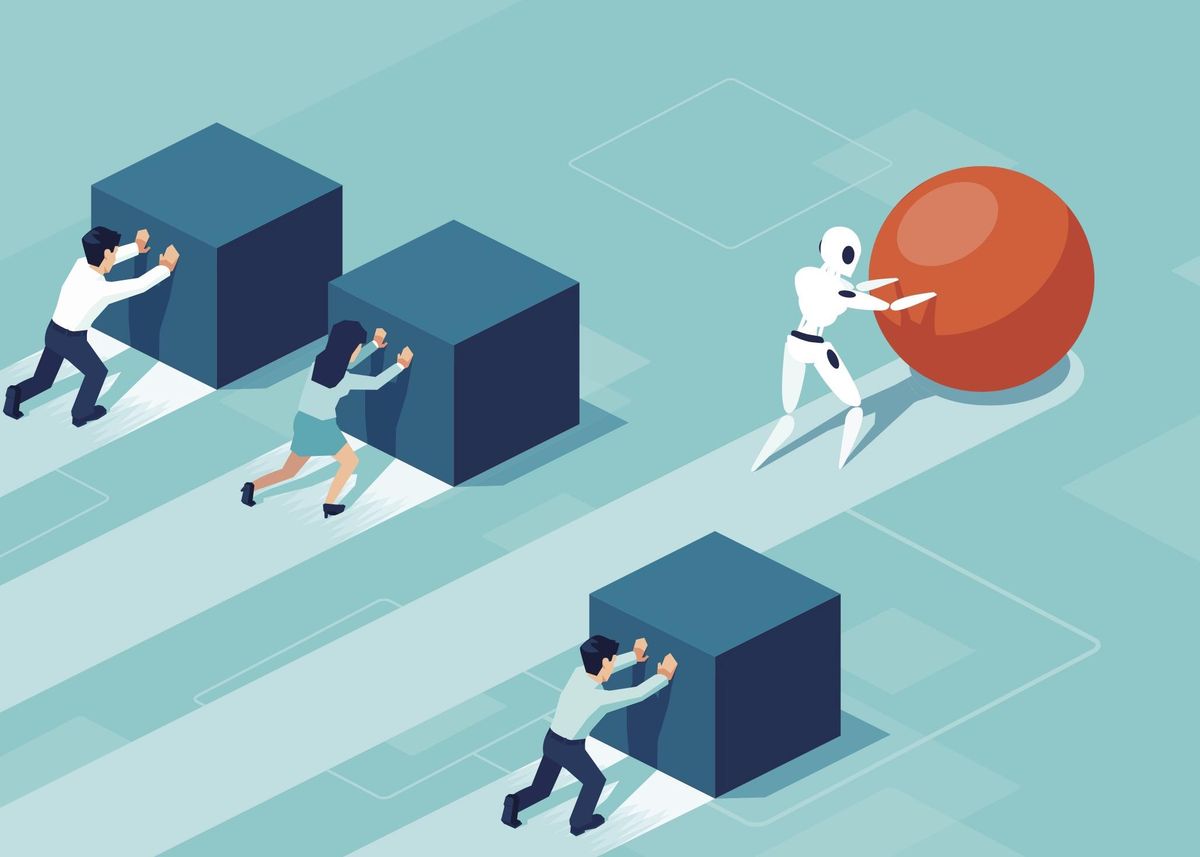
Will AI Take My Job? Your 4-Point Survival Guide to the AI Apocalypse
By Dvir Ben-Aroya
The relentless advancement of artificial intelligence (AI) has triggered a wave of speculation about the future of jobs. As AI technologies extend their reach, industries are grappling with transformative changes that reverberate across workplaces.
First, it's crucial to remember that AI can't replace human ingenuity. For instance, the implementation of chatbot systems may, in fact, amplify the need for human agents. While chatbots can automate numerous tasks, they can't replicate the human touch that accompanies exceptional customer service. Human agents are still indispensable for managing complex issues, nurturing customer relationships, and delivering personalized experiences. AI is indeed a valuable tool, but it's vital to recognize that it cannot supplant human intelligence.
Can chatbots take over your job?
Consider a scenario in which a company, traditionally offering customer support during regular office hours, introduces a chatbot as an around-the-clock solution. Naturally, customers will opt for the chatbot's assistance at their convenience, even outside business hours.
In some instances, the chatbot will effectively handle customer queries, leading to positive experiences and diminishing the need for additional resources. Nevertheless, there will be situations where the chatbot falls short, leaving customers unsatisfied and necessitating assistance from a live agent. Informing customers that they must switch to a phone call or await human assistance until morning can significantly impact their satisfaction levels.
Furthermore, bots and digital platforms themselves introduce usability challenges, often necessitating customer support. Consequently, this may amplify customer inquiries, compelling agents to address evolving customer concerns as well as those linked to AI systems.
The key is striking the ideal balance between AI and human involvement. While AI undoubtedly heightens efficiency and elevates self-service capabilities, it's essential to acknowledge that human interaction remains irreplaceable when tackling intricate and nuanced customer needs.
How to secure your job in the age of AI
1. Innovate to stay relevant
The advent of AI jeopardizes roles that involve repetitive, easily automated tasks. To remain valuable, workers must explore alternative contributions within their fields. In addition, becoming an AI subject matter expert and actively engaging in strategic processes can help you stay relevant.
Here are a few ways to be informed about AI:
- Read industry publications, such as VentureBeat, AI Weekly, and The Next Web.
- Attend AI-centric conferences and workshops.
- Forge connections with fellow professionals through online communities and meetups.
- Participate in online courses and workshops focused on AI.
- Immerse yourself in research papers on AI.
- Subscribe to AI-oriented newsletters and blogs.
- Follow AI experts on social media platforms.
2. Embrace a strategic mindset
Ask yourself why you do what you do, and then figure out how AI can complement your objectives. AI offers versatile solutions to complex business challenges.
For instance, it can automate tasks, analyze data, predict trends, personalize customer experiences, and even help ideate new products and services. By comprehending how AI aligns with your goals, you can identify opportunities to leverage it to enhance your problem-solving abilities.
3. Cultivate creativity and train AI
While AI's creative capabilities are advancing, it still lags behind human insight. Knowledge workers have a unique role in training AI while using their creative talents to maintain ongoing relevance.
AI can be coached to undertake a spectrum of tasks—generating text, scripting code, and even creating art. Yet, it struggles to match the creativity of humans due to its programming limitations. To invigorate AI's creativity, knowledge workers can supply it with feedback and training data, enabling AI to learn and refine its creativity. At the same time, knowledge workers can harness their own creativity to come up with fresh ideas for AI exploration, thus fostering innovation and the expansion of AI's capabilities.
4. Incorporate AI creatively
The process of assimilating AI into your role necessitates a paradigm shift—from viewing AI as a threat to embracing it as an instrument to amplify your capabilities.
Rather than greeting AI with apprehension, embrace it as an additional resource to improve your creative and problem-solving proficiencies. Seek ways to experiment with AI in your workflow, identifying unique opportunities for AI to amplify your expertise. This could entail automating repetitive tasks, dissecting voluminous datasets, or generating insights that would be elusive through manual means.
It's essential to recognize that AI does not replace human creativity, but rather catalyzes it. By astutely harnessing AI's strengths, you can liberate more of your time and cognitive resources to devote to tasks demanding a human touch, such as innovation, critical analysis, and empathy.
Achieving symbiosis in AI integration
As AI perpetuates its transformation of business paradigms, one thing becomes evident: achieving synergy between human expertise and AI capabilities is the way forward. While AI streamlines operations and instills automation, human creativity, empathy, and adaptability remain essential.
Through this symbiotic embrace, both businesses and professionals can thrive in an ecosystem where AI and human potential coexist.
FAQs on AI in the workplace
Can AI take over your job?
AI can definitely handle repetitive tasks, which might mean it takes over some jobs. But, it can also open up new opportunities and be a handy helper in different roles.
Is AI good or bad for the workplace?
AI can be a good thing for the workplace, helping to ramp up efficiency and analyze data, but it's vital to use it in a thoughtful and fair way.
What are some disadvantages of AI?
Some downsides of AI are that it might edge out some jobs, there could be some privacy issues, and sometimes it just doesn't quite get the human nuances that people bring to the table. There's room for improvement, but it's evolving at a very rapid pace.
About the Author
Post by: Dvir Ben-Aroya
Dvir Ben-Aroya is the cofounder and CEO of Spike. He previously worked at Acronis as VP global business Development. Dvir Ben-Aroya attended Manchester University.
Company: Spike
Website: www.spikenow.com
Connect with me on
LinkedIn.




